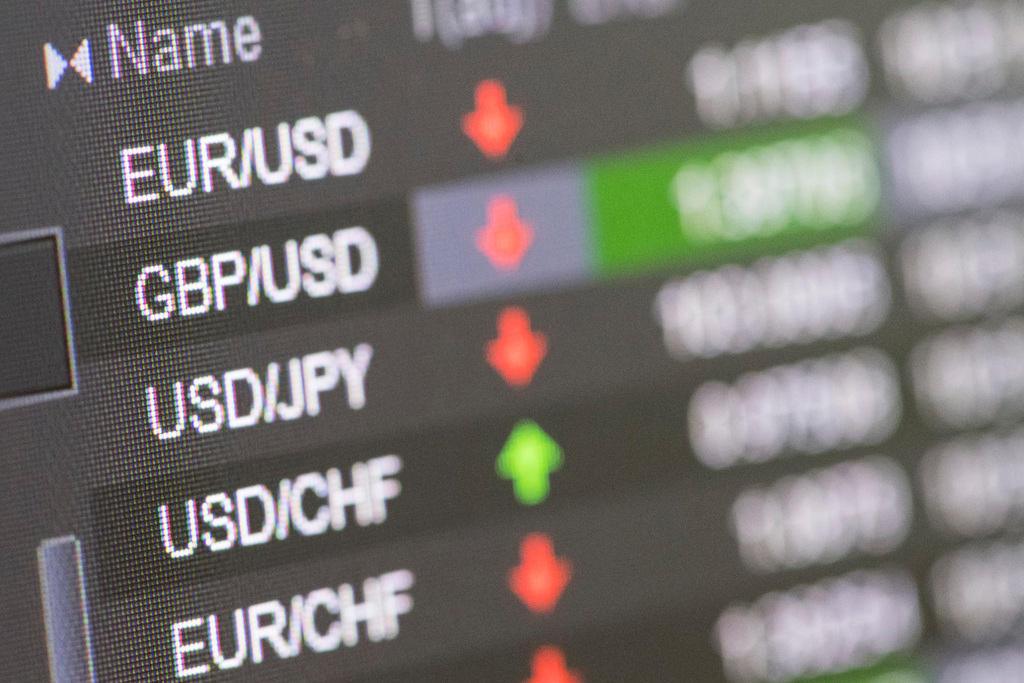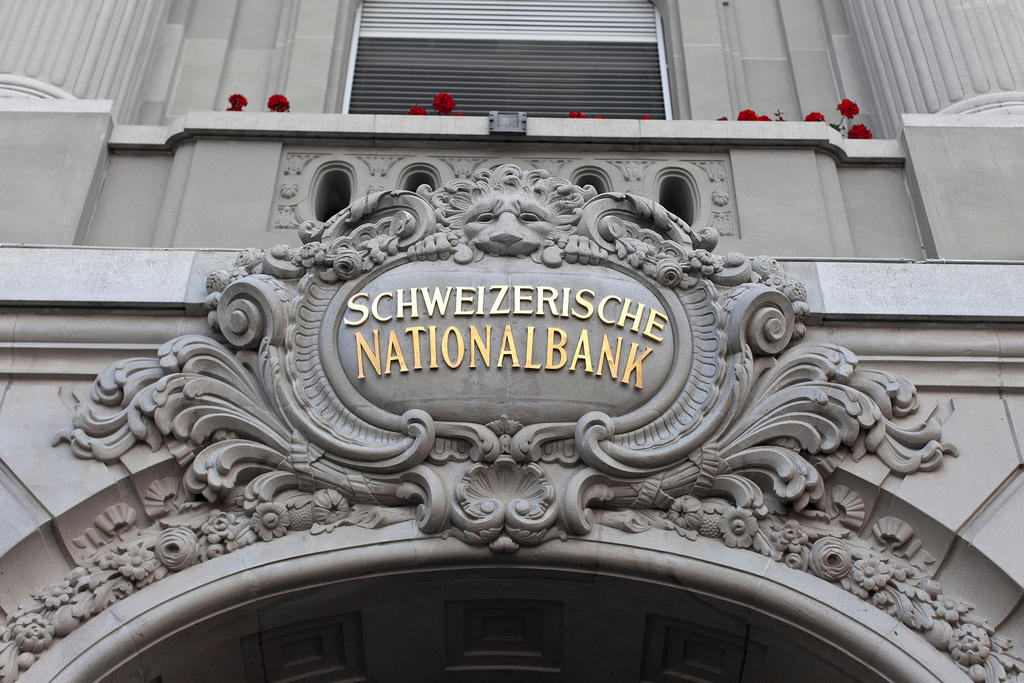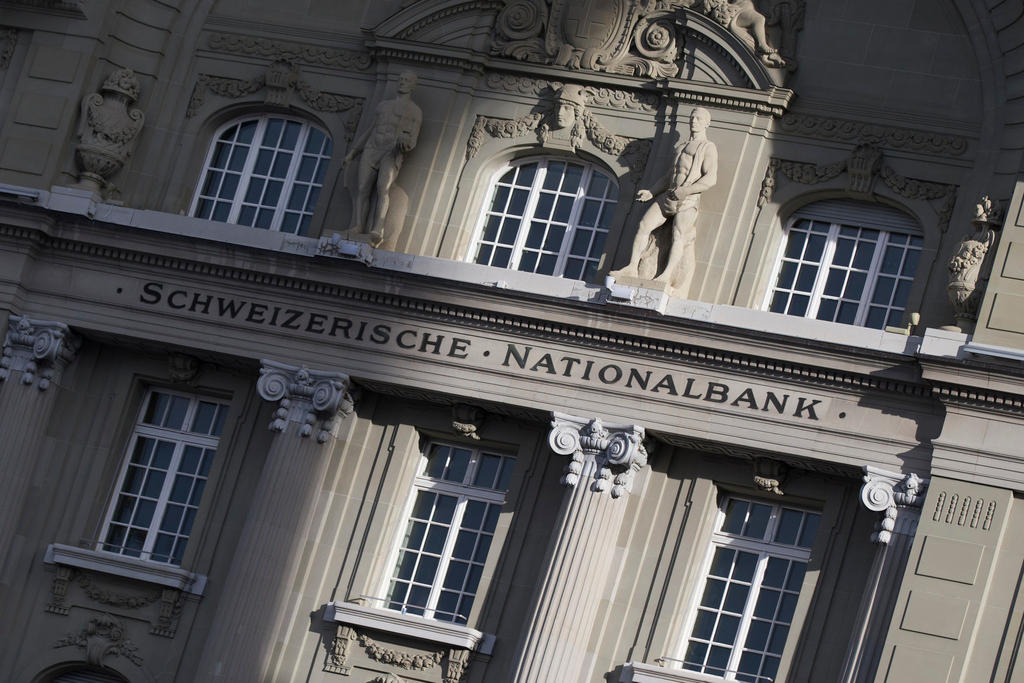Swiss central bank reports CHF24 billion annual profit

The Swiss National Bank made big gains in 2016, reporting a CHF24 billion ($23.5 billion) profit in provisional results. It’s a huge pendulum swing from the CHF23.3 billion loss made the year before.
The results were largely down to foreign currency holdings built up to weaken the strong Swiss franc, typically a safe haven currency. Foreign currencies, particularly the US dollar, gained in strength last year, boosting the SNB’s position.
The central bank regularly buys euros, dollars and other currencies to prevent the franc from appreciating too much. Profit from foreign currency positions amounted to more than CHF19 billion, the SNB said in an interim statement released on Monday.
This represents an exceptional year for the central bank that would on average expect to achieve around CHF15 billion in annual profits from its holdings, according to Alessandro Bee, Chief Investment Officer at UBS bank.
“The strong results are reflected in a strong stock market rally after the election of Donald Trump to the US presidency and a strengthening dollar,” he told swissinfo.ch. Last year, the SNB increased its stake in US blue chip stocks, such as Amazon and Facebook.
Volatile results
The huge difference in results from 2015 to 2016 can be explained by the SNB’s unexpected decision on January 15, 2015, to end its peg to the euro. This led to a sudden sharp appreciation of the franc, and declines in other currencies, which resulted in a book loss for the central bank. Foreign exchange markets settled down last year, wiping off those losses.
This is not the first time SNB results have differed drastically from one year to the next. In 2013, the central bank posted CHF9.1 billion losses, followed by a CHF38.3 billion profit the following year. Profits and losses are largely book results that do not affect the bank’s solvency.
A detailed report on the 2016 annual result with definitive figures will be released on March 6. But Bee has already made some calculations.
Around 80% of the central bank’s foreign currency holdings are in bonds, which Bee calculates would have generated some CHF8 billion in interest payments. Another CHF2 billion would likely have been added in dividend payments from equity positions. The rest of the foreign currency gains would have been realised from favourable exchange rate movements and strengthening stock markets – a more volatile source of income.
A valuation gain of CHF3.9 billion was also recorded on gold holdings, the SNB said in its statement.
“The SNB’s main objective is to stabilise the franc, not to make profits,” explained Bee. “It is a largely passive investor that does not want to influence markets.”
Money to cantons
After taking into account the distribution reserve of CHF1.9 billion, the central bank said net profit will be in excess of CHF21 billion. This will allow a dividend payment of CHF15 per share. Profit distribution to the government and Switzerland’s 26 cantons should be up to CHF1.5 billion.
Last November, the SNB agreed to change the formula for distributing profits, allowing for missing payments to the confederation and cantons to be made up in future years. In 2013, no payment was made after the price of gold plummeted.
The independent central bank’s strategy of defending the franc has attracted political criticism from both the left and the right. Left-leaning politicians and trade unions have accused the SNB of not doing enough to weaken the franc, resulting in problems for exporters and the tourism industry. In addition, negative interest rates are hurting pensions, unions complain.
Those to the right of the political spectrum worry that the SNB’s growing foreign currency reserves (which outstrip annual GDP) could result in spectacular losses in future. Concerns have also spilled out into past and future referenda that attempt to alter SNB policy.
Speaking to the HandelsZeitung newspaper last week, star US economist Kenneth Rogoff defended the SNB’s actions, but warned that its options were practically used up if pressure on the franc remains.

In compliance with the JTI standards
More: SWI swissinfo.ch certified by the Journalism Trust Initiative





You can find an overview of ongoing debates with our journalists here. Please join us!
If you want to start a conversation about a topic raised in this article or want to report factual errors, email us at english@swissinfo.ch.